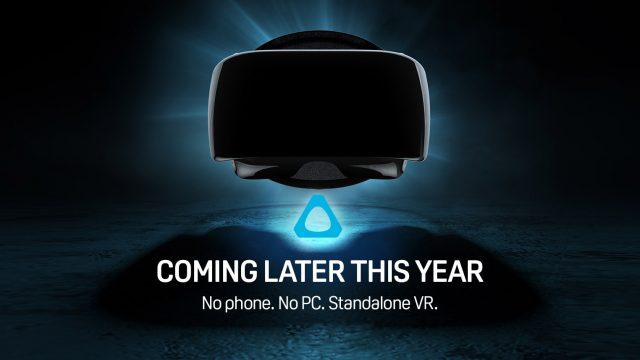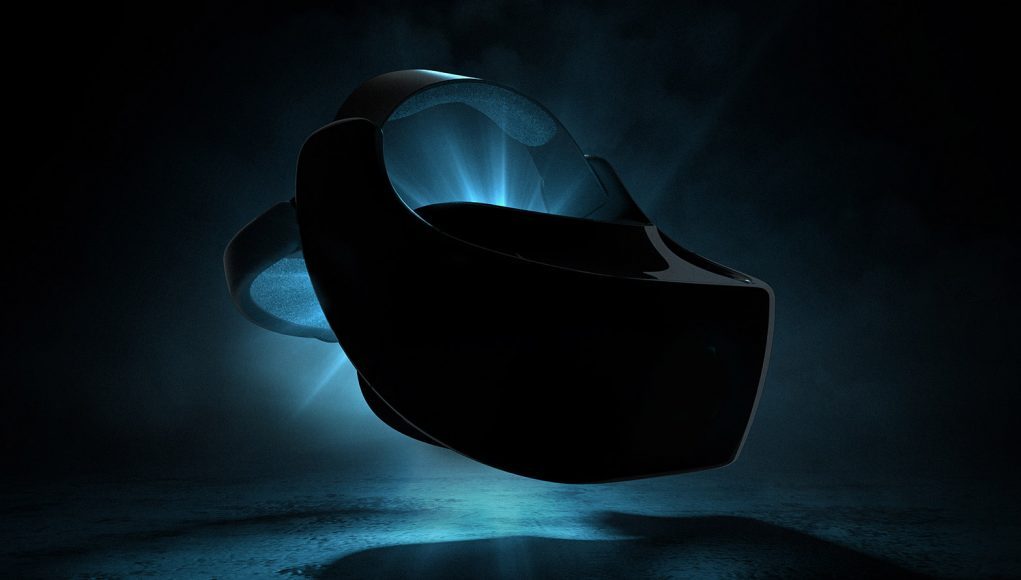Google and HTC are partnering up on Google’s new standalone Daydream VR initiative which will see fully-self contained mobile VR headsets built on Android. HTC is bringing its Vive brand to Daydream, today announcing that the company will build a mobile VR headset for the Daydream platform.
HTC and Lenovo are the first two companies announced to be working with Google to make standalone VR headsets for the Daydream platform. A standalone VR headset has all the necessary hardware on board to deliver a complete VR experience without the need to snap in a smartphone like the prior Daydream View headset and Samsung Gear VR. Standalone VR headset’s can be optimized specifically for VR rather than being limited by the design of a smartphone.
HTC has teased a first look at its mobile Vive Daydream headset which is an interesting design departure from the Vive PC headset. The Vive standalone headset will use Google’s newly announced WorldSense inside-out tracking which needs no beacons or external sensors to achieve positional tracking (which goes beyond the rotational-only experience of existing mobile VR experiences that rely on a smartphone).
“We have been working closely with developers and consumers to define the best VR experiences over the past few years, and we are perfectly positioned to deliver the most premium standalone headset and user experience. Vive’s standalone VR headset will provide a deeper and more immersive portable VR experience than ever before.”
 HTC says that they’ll be revealing more details about the headset soon and that they plan to launch it later this year.
HTC says that they’ll be revealing more details about the headset soon and that they plan to launch it later this year.







